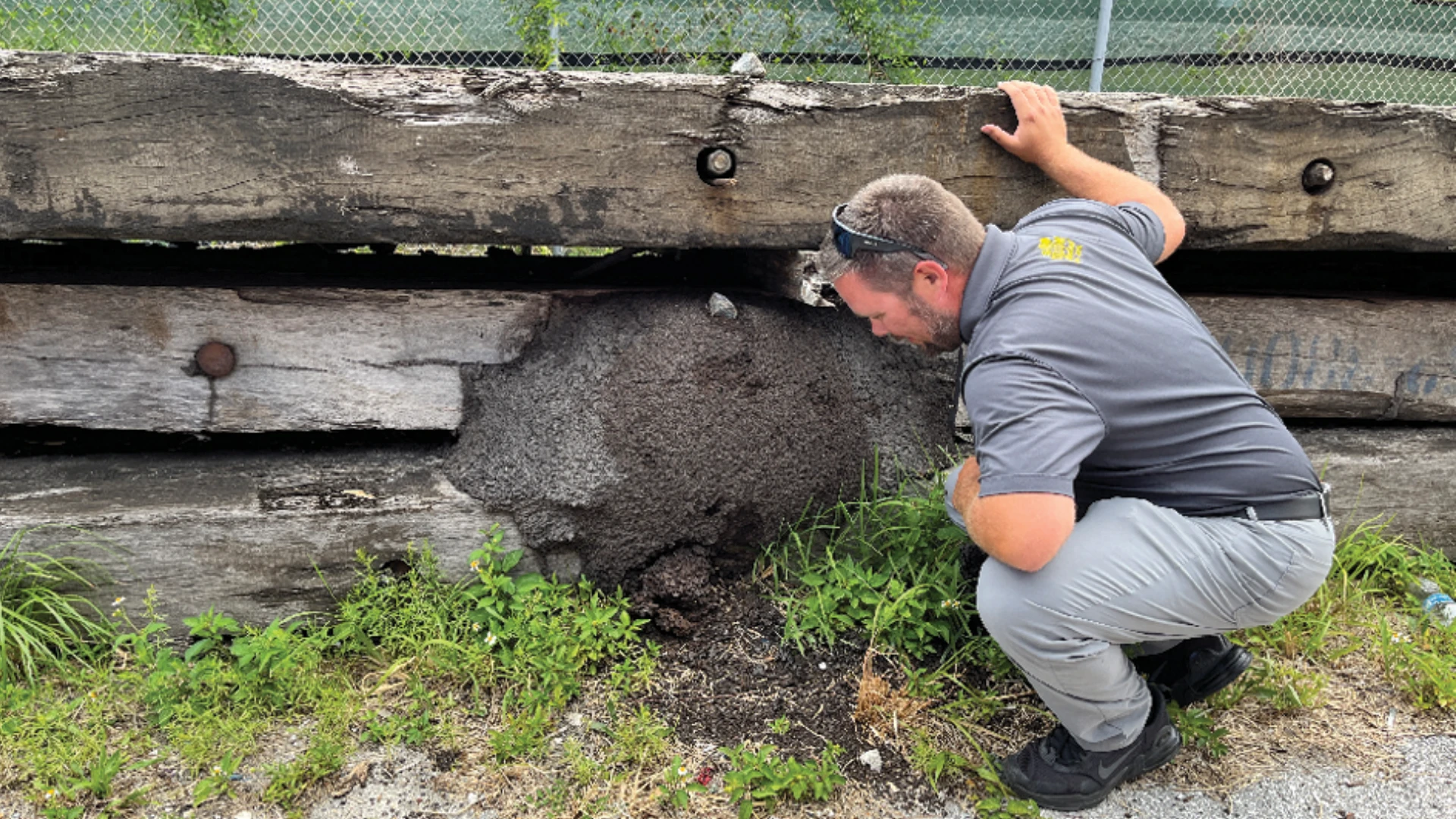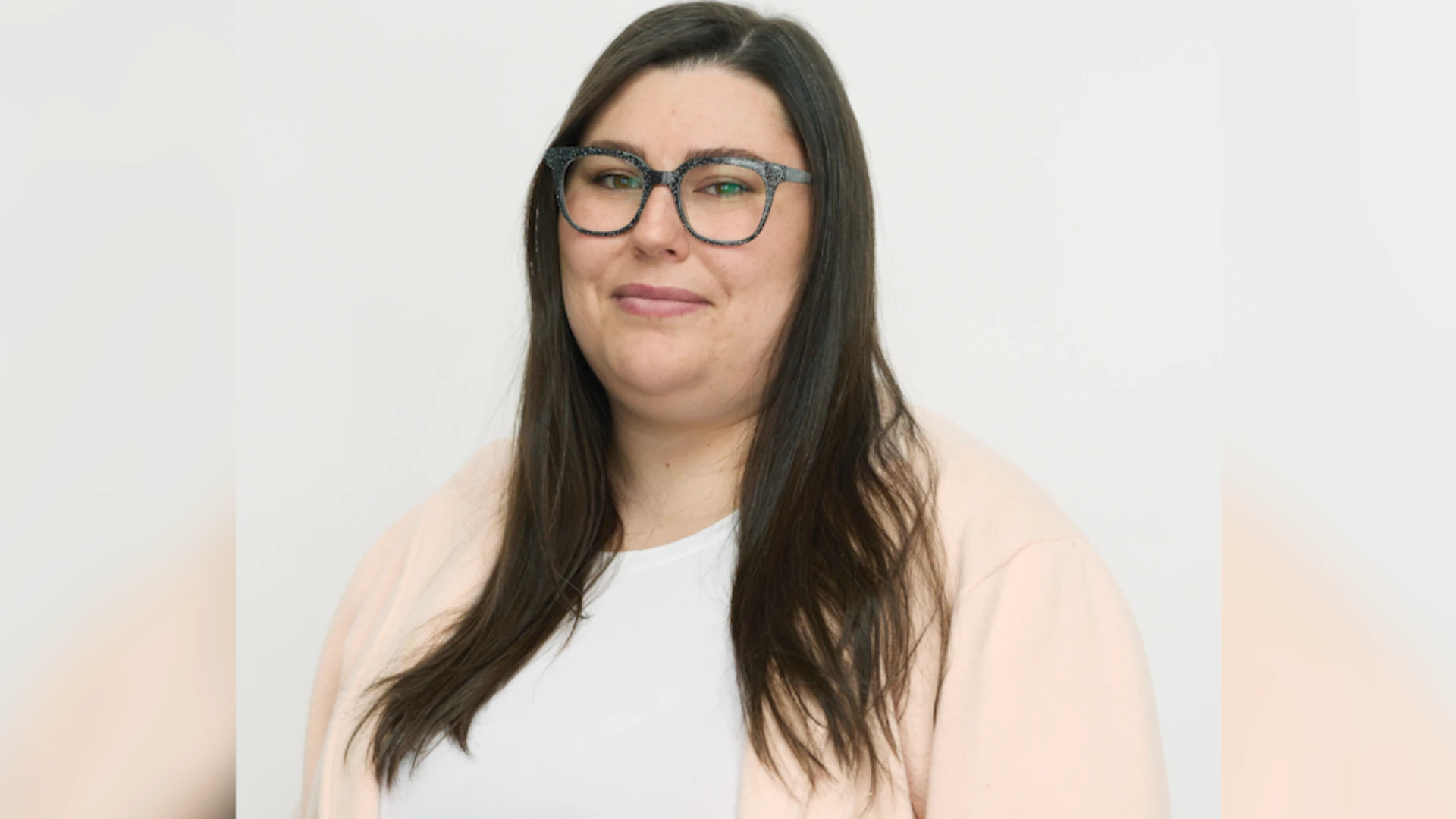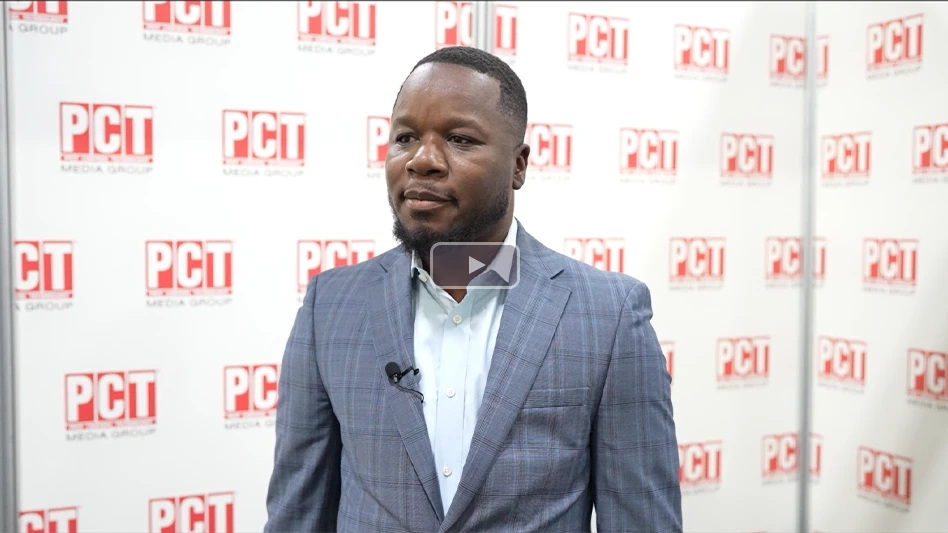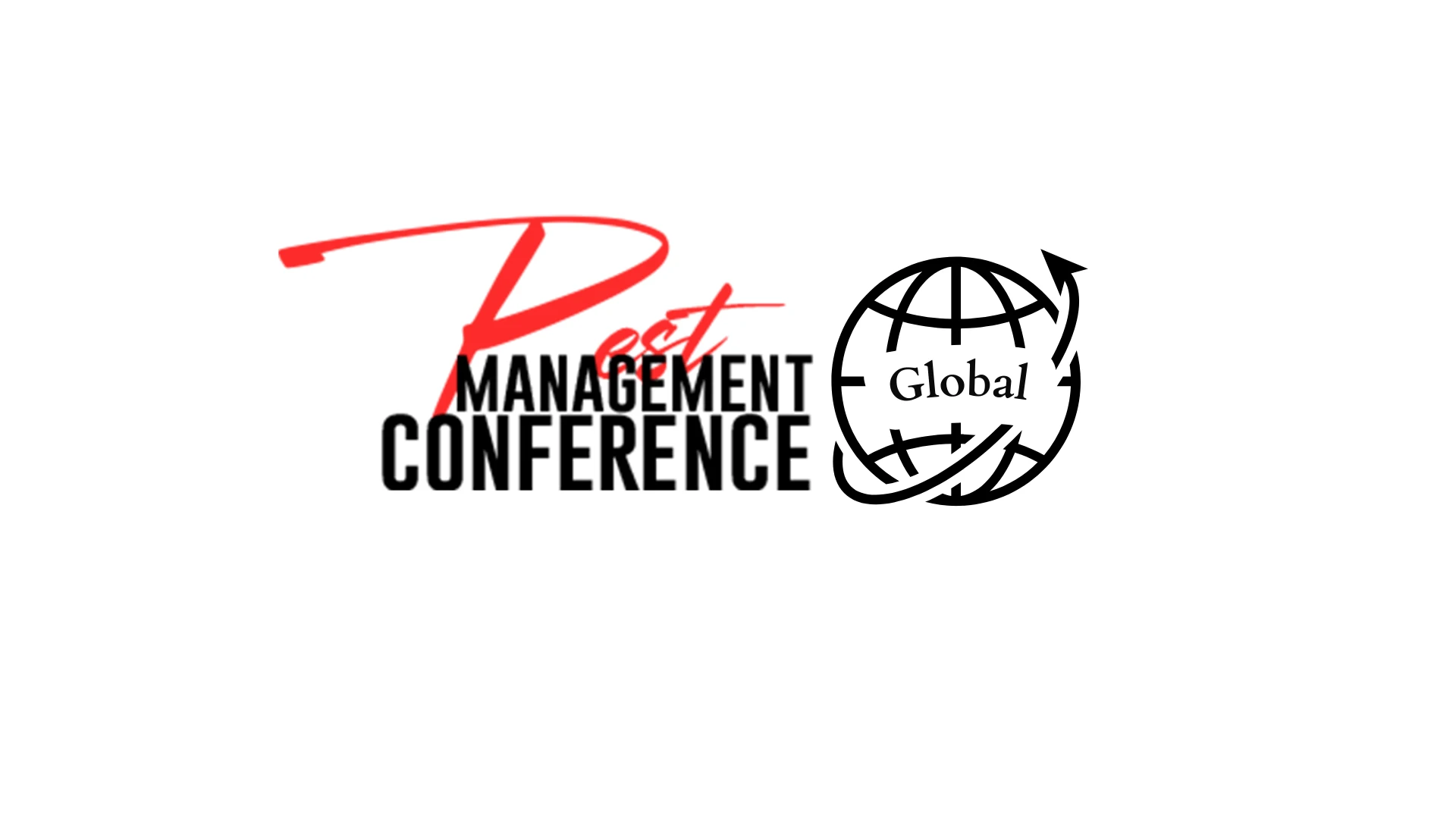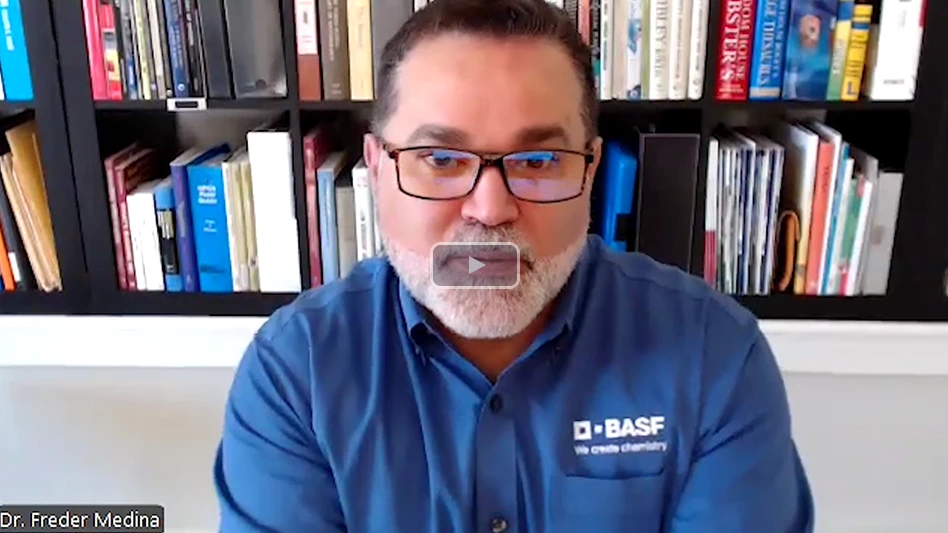WHITMIRE MICRO-GEN NO LONGER IN DISCUSSIONS WITH POTENTIAl SUITORS
TORONTO, ONTARIO, CANADA — For much of the past year there have been persistent rumors that Whitmire Micro-Gen Research Laboratories was on the block and would be sold to the highest bidder, with a number of prominent companies being mentioned as potential buyers. However, Andy Symons, president of the St. Louis-based firm, laid those rumors to rest during his opening remarks at the Whitmire Micro-Gen Institute of Technology Conference in Toronto.
Symons said the company is "no longer in discussions" with any potential suitors for the business, which is owned by Johnson-Diversey and is best known for its innovative Prescription Treatment® technology. "That’s not to say we will never sell the business," he said. "In this day and age comments of that nature are not realistic. We will continue to reassess on an ongoing basis, as I suspect will every company in our industry. But today we are not in divestiture discussions with any company."
Symons added that Whitmire Micro-Gen remains committed to the structural pest control industry. "Pest management professionals have equity in our business and as such we have a great responsibility to serve them to the best of our abilities," he said. "Our business today is stronger and healthier than it ever has been. For that I thank the thousands of customers and business partners that have supported our business over the years."
In a related announcement, Symons will continue to serve as president of Whitmire Micro-Gen. "The opportunities for the future of the business and the industry are extremely exciting and I want to be part of this team," he said. Symons, who holds a law degree and completed a commercial management program with Marks and Spencer in the United Kingdom before joining S.C. Johnson in 1981, was named president of Whitmire Micro-Gen in 1998.
PCT ON THE ROAD: ANNUAL ASPCRO MEETING OPENS UP IMPORTANT DIALOGUE
TUNICA, MISS. — Pressing regulatory issues were discussed among state pest control regulators, EPA officials, pest management professionals, researchers, distributors, manufacturers and others at the 2002 Association of Structural Pest Control Regulatory Officials (ASPCRO) Annual meeting Aug. 26-28 in Tunica, Miss. More than 200 attendees representing 40 states helped make this year’s meeting the third largest in ASPCRO’s history.
Among the "hot" topics was the need to amend EPA’s PR Notice 96-7. ASPCRO members and others from the regulatory community are working to include in PR 96-7 a national policy for the review of efficacy and registration of termiticides. ASPCRO President John McCauley said he and other regulators have been meeting with groups such as Responsible Industry for a Sound Environment (RISE), EPA and the U.S. Forest Service to develop a "a more transparent, broader-based process for reviewing efficacy and registration practices."
"None of us want to go to different states and have different registration practices in those states," McCauley said. "Over the course of the next year we hope to have a national policy in place."
McCauley said the ASPCRO Annual Meeting was another good forum to discuss this and other issues. "It’s a great opportunity for pest management professionals, the manufacturing and regulatory community, and the research community to sit down and have a forum in a friendly environment and work through issues," he said.
Current and future challenges to the pest control industry and regulatory community were also discussed and debated at this year’s meeting. Bob Rosenberg, director of government affairs for the National Pest Management Association, updated members on the School Environment Protection Act (SEPA) — legislation seeking to protect public school children and staff from certain pesticides. SEPA was not included in the final version of the farm bill, which was passed by the House May 2, 2002.
Arnold Layne, chief of the EPA-OPP Registration Division’s Insecticides Branch, and the Agency’s OPP Public Health Official (OPHO), provided an update on the termiticide registration process. EPA recently held a two-day meeting of its Scientific Advisory Panel to consider a draft performance guideline for termite baits. The meeting determined the efficacy standard EPA applies for registering any new bait products.
The latest termite research updates were provided by Dr. Brian Forschler, Dr. Faith Oi and Dr. Roger Gold, while Greg Crosslin, a partner with the law firm Crosslin, Slaten and O’Connor, Montgomery, Ala., spoke on the hotly debated topic of toxic mold.
MERCK KGaA TO SELL LIPHATECH RODENT CONTROL BUSINESS
MILWAUKEE — Merck KGaA, a German-based producer of pharmaceuticals and chemicals, announced in September its intention to sell the global rodent control portion of its subsidiary, LiphaTech Inc., to DeSangosse, a French company specializing in plant protection and pest control.
The purchase, which will become effective during the fourth quarter of 2002, includes rights to the LiphaTech name, as well as all trademarks and product registrations in the company’s existing markets in the United States, France and Argentina. In the United States, this includes LiphaTech’s research and manufacturing facility located in Milwaukee and its 35 employees.
"All existing U.S. employees involved in the LiphaTech rodent control business will be offered positions in the new DeSangosse entity," said André Samier, chief executive officer of DeSangosse. "Also, the same great products that made LiphaTech an industry leader — Generation, Maki and Aegis — will continue to be marketed under the LiphaTech name."
DeSangosse’s line of pest control products includes Metarex, the European market-leading molluscicide. By joining forces with LiphaTech, DeSangosse will be able to offer a more complete line of pest control products, the company said.
"LiphaTech has successfully grown its rodent control business over the past 15 years. Now, as part of a company specifically focused on pest control, LiphaTech is positioned for substantial advancement in the global market," said Carl Tanner, chief executive officer of LiphaTech Inc.
JIM SIMMONS CO. NOW STEPHENSON EQUIPMENT COMPANY
NASHVILLE, TENN. — The Jim Simmons Company of Nashville, Tenn., an equipment supplier to the pest control industry, recently changed its name to Stephenson Equipment Company.
The Jim Simmons Company was purchased in February 2002 by Calvin and Lisa Stephenson. Calvin Stephenson is a 35-year veteran of the pest control supply business and former president of Stephenson Chemical Company. "We’re very excited about the name change," Stephenson said. "The company will remain a supplier of quality products to the pest control industry but this represents a new, fresh approach to the business. We are currently expanding our product line and are committed to providing the finest line of products at the best price with responsive customer service."
The company offers a full line of termite and pest control equipment and supplies, landscape sprayers, industrial power tools and drill bits. For more information call 800/251-4931.
WHITMIRE MICRO-GEN, SOREX INTERNATIONAL ANNOUNCE ALLIANCE
TORONTO, ONTARIO, CANADA — Whitmire Micro-Gen recently announced a partnership with Sorex International, one of Europe’s most respected pest control businesses. Under the partnership, Sorex will introduce Whitmire Micro-Gen’s Prescription Treatment® brand products and support services in Europe, while Whitmire Micro-Gen will provide access to the U.S. market for selected Sorex technologies.
"We recognize that Sorex has similar emphasis on quality, customer service, education and training that matches ours," said Tom Brydon, Whitimire Micro-Gen’s director of new business. "By working together, we will benefit from each other’s market expertise and technological advances. This means bringing our current products and technology to an expanded European customer base and, in turn, bringing new products and technology to our established U.S. customer base. It’s a win-win situation for both companies and will allow us to continue to make pest management more profitable for our customers."
According to Rob Fryatt, Sorex International’s commercial director, Sorex may be a new name to many in the U.S., but in Europe the company is a serious player. "We’re an international business with our main manufacturing and distribution based in England, which makes us different in our outlook and approach," he said. "This partnership, and the product potential for the U.S. and European markets, is very positive. Like Whitmire Micro-Gen, we are a manufacturing and marketing specialist focused strongly on the global urban pest control market. We speak to our customers in their own language and strive to have a good understanding of the local culture."
Both companies have a broad product range and Whitmire Micro-Gen is best known for it Prescription Treatment® brand systems. "We believe it’s exactly the right time to bring the Prescription Treatment approach to the European market," Fryatt said. "We want to be perceived as the company that brings strong U.S. brands to Europe."
In Europe, Sorex is synonymous with rodent control. The company has more than 50 years of experience in the field, developing such second-generation active ingredients as difenacoum and brodi-facoum. The company also markets the Roguard brand of rat and mouse boxes and Network brand of bird control products. In addition, Sorex is involved in developing innovative formulations and is currently evaluating its patented dry gel insect control technology, which shows promise against a wide range of pests.
The alliance was announced at the Whitmire Micro-Gen Institute of Technology conference in Toronto, Ontario, Canada, Sept. 8-10.
KNESS, LIPHATECH ENTER INTO STRATEGIC MARKETING AGREEMENT
ALBIA, IOWA — Kness Manufacturing Inc. announced the initiation of a strategic marketing agreement with LiphaTech to represent Kness in the professional pest control marketplace, effective Oct. 1.
Under the arrangement, LiphaTech sales representatives will be calling on and training distributor sales representatives and PCOs on Kness products. LiphaTech also will be exhibiting Kness products at shows and conventions.
Currently, Kness’ lone sales representative is Marketing Manager Steve Cooper, following the retirement of Dwight Mater earlier this year.
"We needed better U.S. coverage," Cooper told PCT. "LiphaTech has five sales reps and can provide the total U.S. coverage we need. They have great sales reps who are also great speakers and I think they’ll represent Kness the way we want to be represented in the pest control market."
Kness has had a previous relationship LiphaTech, whose Aegis Modular System was designed to accommodate products such as Kness’ Big Snap-E Rat Trap. "I think our product lines complement one another," Cooper said. "They are in the rodent bait and rodent box business and we are in the trap business, so I think Kness helps them round out their line."
Al Smith, national sales and marketing manager, LiphaTech, agreed that the partnership will be beneficial to both companies. "In 1999 we began representing the Aegis products and that partnership gave us bait stations; our arrangement with Kness gives us another product offering in the rodent control market," Smith told PCT. "Now the PCO can look to us and when we make a recommendation he knows he is getting the best products available for whatever he needs, whether he is going to put bait out, do snap-trapping and even some areas of insect management (with the Kness Ants No More ant bait station)."
PCOs can continue to fax, phone or e-mail their orders directly to Kness. All ordering and billing will remain the same.
DOW AGROSCIENCES RESTRUCTURES
INDIANAPOLIS — In mid-September, Dow AgroSciences LLC announced an organizational change that went into effect Sept. 1, which will simplify the company structure. The restructuring will place more emphasis on the pest management business.
"This reorganization will further enhance Dow AgroSciences’ position as the industry leader in customer support and help us continue to provide pest management solutions for our business partners and the industry," says Elin Miller, vice president, global pest management.
As part of the overall restructure, Dow AgroSciences evaluated all of its business groups and is moving from five business units to three globally. Dow AgroSciences is elevating the pest management unit to its own entity — one of three global business units — due to the unique customer business relationships and product and service portfolios currently in place, as well as opportunities for the future, officials say. The other global business units include one focused on biotechnology and another on its agricultural businesses, including the turf and ornamental (T&O) group.
This restructure also represents a realignment of responsibilities and talent within the pest management group. With more than 100 years of combined experience in the industry, the pest management leadership team will remain focused on bringing innovation to the marketplace, the company reports.
In addition to Miller, the team includes Mark Neterer, North American sales leader; Mike Donnelly, global business leader for the Sentricon® Termite Colony Elimination System; Bruce Jacobs, Sentricon System innovation leader; Tim Pollard, marketing specialist for the Sentricon System; Jeff Welker, global business leader for sulfuryl fluoride and chlorpyrifos; Jane MacMillan, marketing specialist for Vikane® gas fumigant and ProFume® gas fumigant; and Scott Hutchins, global research and development leader.
According to Neterer, Dow Agro-Sciences support of its business partners will remain unchanged. "Our partner companies can continue to count on the unmatched business support and customized business solutions from the same dedicated field organization that has become an integral part of their businesses," he said.
Outside the United States, David Hindes, international business development leader, will lead the business in each of the company’s respective regions. In addition, this reorganization is providing an opportunity for Reid Sprenkel, who has held several roles in the pest management industry for nearly 20 years, to share his experience as the global business leader for T&O and Telone® soil fumigant.
NEW TERMIDOR LABEL INCLUDES ANTS, DRYWOOD TERMITES
MONTVALE, N.J. — Bayer Environmental Science last month announced that a new label has been approved for Termidor termiticide/insecticide that extended the product’s use to both ants and drywood termites.
"PMPs and homeowners can now trust Termidor to deliver the same unmatched ant control results they’ve experienced with termite control," said Karl Kisner, hold separate manager, Fipronil Environmental Science.
Regarding the new ant label, Kisner told PCT that Termidor is to be used strictly for outdoor applications that are going to be used as a perimeter treatment around the structure. "A band 1 foot up and 1 foot out around the foundation of the structure is allowed," he said.
Just like termite applications, Termidor works as a non-repellent, infecting ants by either contact or ingestion. When Termi-dor is used for ants, the rate remains the same as on the termite label, which is .06 percent. Termidor provides up to one year of control of carpenter, Argentine, big-headed, odorous house and pavement ants with a single application, Bayer ES says.
Kisner told PCT now that the product has been registered federally, it’s up to each individual state to process it through its system, which typically occurs as soon as the state receives the new label from Bayer ES. There are several states that will require additional testing, Kisner said.
According to Bayer ES, field studies conducted by leading ant experts in the U.S. have repeatedly shown that a single Termidor application reduces ant foraging within a few days.
Termidor is also now labeled for wood injection control of drywood termites.
Using Termidor will require a pest management professional to identify the location of the drywood termites and galleries so the Termidor finished spray solution (or foam) can be directly injected into these active galleries. For drywood termites, Termidor begins to take effect within a day after treatment, however 95 percent control can be achieved in three to six days after treatment. Preliminary testing with Termidor has shown 100 percent control of drywood termites 49 days after a single application, Bayer ES says.
Other changes to the label include new language for tree injections; a revised PPE requirement for applicators in crawl-spaces; added language for treatment around sump pumps and French drains; and treatment of aerial carton nests.
PESTMASTER SERVICES' CAROL MACAFEE PASSES AWAY
BISHOP, CALIF. — Carol MacAfee, franchise manager for Pestmaster Services, Bishop, Calif., died unexpectedly Aug. 11. She was 38.
MacAfee, who worked at Pestmaster for about seven years, was in charge of sales, service and support of company franchises, as well as being the company’s "risk manager" because of her experience as an insurance broker prior to joining Pestmaster.
MacAfee and three others perished in an airplane crash just outside Bishop. The cause of the crash is unknown.
"Carol was a tireless worker for the success of her franchisees. She was energetic, bright, down to earth and very easy to become friends with. She loved our industry and truly believed in IPM, our mission statement and showing people how they could help themselves become successful," said Jeff Van Diepen, owner of Pestmaster. "She was this company’s No. 1 ‘cheerleader.’
"Her spirit, pride, ‘can do’ attitude and care towards all associated with her will be difficult to replace. I’ll always remember how she could turn the toughest challenges into something positive," he said. "We’d ‘react’ and she’d get us all settled back down with her calming style. She could also be a spirited fighter when the chips were down."
Contributions in MacAfee’s name can me made to the Girl Scouts and the "Freedom in Motion" effort, an association that arranges for handicapped children to ride horses for the first time.
She is survived by her parents, John and Corrynne Ludwig of Licking, Mo.; brother and sister-in-law Dean and Carla Ludwig of Bishop; brother and sister-in-law Craig and Dana Ludwig of Bishop; niece Jacklyn Ludwig of Bishop; and nephew Jonathon Ludwig, also of Bishop.
SYNGENTA NAMES NEW PRESIDENT OF SYNGENTA CROP PROTECTION
GREENSBORO, N.C. — Syngenta announced on Aug. 26 that Michael Mack has been named president of Syngenta Crop Protection Inc., with responsibility for the company’s North American operations, based in Greensboro. Mack, 42, was formerly president of the Atlanta-based worldwide paper division of Imerys S.A., a French corporation. His appointment was effective Sept. 1.
Prior to his role at Imerys, Mack held senior management roles based in the U.S. for English China Clays PLC and with Mead Corporation. "Mike brings to Syngenta a strong track record of U.S. and international business leadership," said John Atkin, chief operating officer of Syngenta Crop Protection. "He has management expertise in high-level strategy and operations, as well as a strong sales and marketing background."
Bob Woods, who has led Syngenta Crop Protection’s North American operations since Nov. 2001, will work closely with Mack during the transition. Woods will remain as chairman of Syngenta Corporation, U.S., based in Wilmington, Del.
NEW PPMA CHAIRMAN ANNOUNCED
DUNN LORING, VA. — Tommy Fortson, co-owner of the largest Terminix franchise, was recently elected chairman of the Professional Pest Management Alliance (PPMA) Board of Directors. He assumes the office previously held by outgoing Board Chairman Bobby Jenkins, who left the one-year term position to become president of the National Pest Management Association.
"I’ve been committed to PPMA from the first day — emotionally and financially," Fortson said. "If you’re looking at the next person and wondering who’s going to do the job of building PPMA, you better stop and look right here first," he said as he pointed a finger at himself to emphasize that every pest control professional must take personal responsibility for growing the industry.
The pest control industry veteran of 39 years has served in various leadership capacities throughout the field, including past president of both the North and South Carolina Pest Control Associations, and past chairman of the Clemson University Advisory Board for Public Service and Agriculture.
Fortson is president of Terminix Service, based in Columbia, S.C., a Terminix franchise that operates in that state as well as North Carolina and Georgia.
JIM SIMMONS CO. NOW STEPHENSON EQUIPMENT COMPANY
NASHVILLE, TENN. — The Jim Simmons Company of Nashville, Tenn., an equipment supplier to the pest control industry, recently changed its name to Stephenson Equipment Company.
The Jim Simmons Company was purchased in February 2002 by Calvin and Lisa Stephenson. Calvin Stephenson is a 35-year veteran of the pest control supply business and former president of Stephenson Chemical Company. "We’re very excited about the name change," Stephenson said. "The company will remain a supplier of quality products to the pest control industry but this represents a new, fresh approach to the business. We are currently expanding our product line and are committed to providing the finest line of products at the best price with responsive customer service."
The company offers a full line of termite and pest control equipment and supplies, landscape sprayers, industrial power tools and drill bits. For more information call 800/251-4931.
PEST CONTROL INSULATION OFFERS ADD-ON OPPORTUNITY
CORNELIA, GA. — An exhibitor at the NPMA Convention this month in Orlando will be Pest Control Insulation Systems, which manufactures T·A·P (Thermal Acoustical Pest Control).
T·A·P is a natural fiber insulation treated with boric acid and other formu-lations to produce insulation with pest-controlling properties. According to the manufacturer, T·A·P is acceptable for use around humans and pets, but deadly to cockroaches, silverfish, ants, termites, and many other crawling insects.
T·A·P is the result of a merger of natural cellulose insulation and borates, creating Thermal, Acoustical & Pest Control Insulation, a stabilized pest control insulation. As part of a total pest management package, T·A·P can be used to cap existing insulation in attics, or can be installed in the attics, walls and crawlspaces of new construction, the manufacturer says.
According to Pest Control Insulation Systems, some PCOs have had success in “capping” customers’ attics with this product because T·A·P can be applied directly over any type of existing attic insulation to upgrade the thermal performance of the entire building.
Pest Control Insulation Systems developed T·A·P as a way to keep pest management professionals busy in the off-season when, depending on the area of the country, insects are not as active. T·A·P is an EPA-labeled pesticide. In many states, T·A·P may be installed only by a certified PCO (or under a PCO’s supervision).
For more information, visit www.tapinsulation.com.
PURDUE ANNOUNCES CONFERENCE DATES
WEST LAFAYETTE, IND. — The 67th Annual Purdue Pest Control Conference will be held Jan. 6-10, 2003, at Purdue University in West Lafayette, Ind.
The conference will feature a wide array of technical and training presentations. Attendees can obtain the latest information from the most knowledgeable speakers from around the world. New to the program will be the Monday Evening Exhibition Grand Opening Reception.
For more information contact Susan Umberger sumberger@purdue.edu or call 800/359-2938, ext. 92U.

Explore the October 2002 Issue
Check out more from this issue and find your next story to read.
Latest from Pest Control Technology
- The Evolving World of Electronic Rodent Monitoring
- Back-to-basics Approach for Cockroach Control
- PPMA Encourages PMPs to Take Part in Termite Awareness Week
- Moneypenny is a Provider of Virtual Receptionists
- Video: Top 10 PCT Photo Contest Finalists
- Massey Services Expands with Southeast Commercial Region
- Pest Management Foundation Announces Kevin J. Burns Scholarship
- How to Identify Clover Mites
